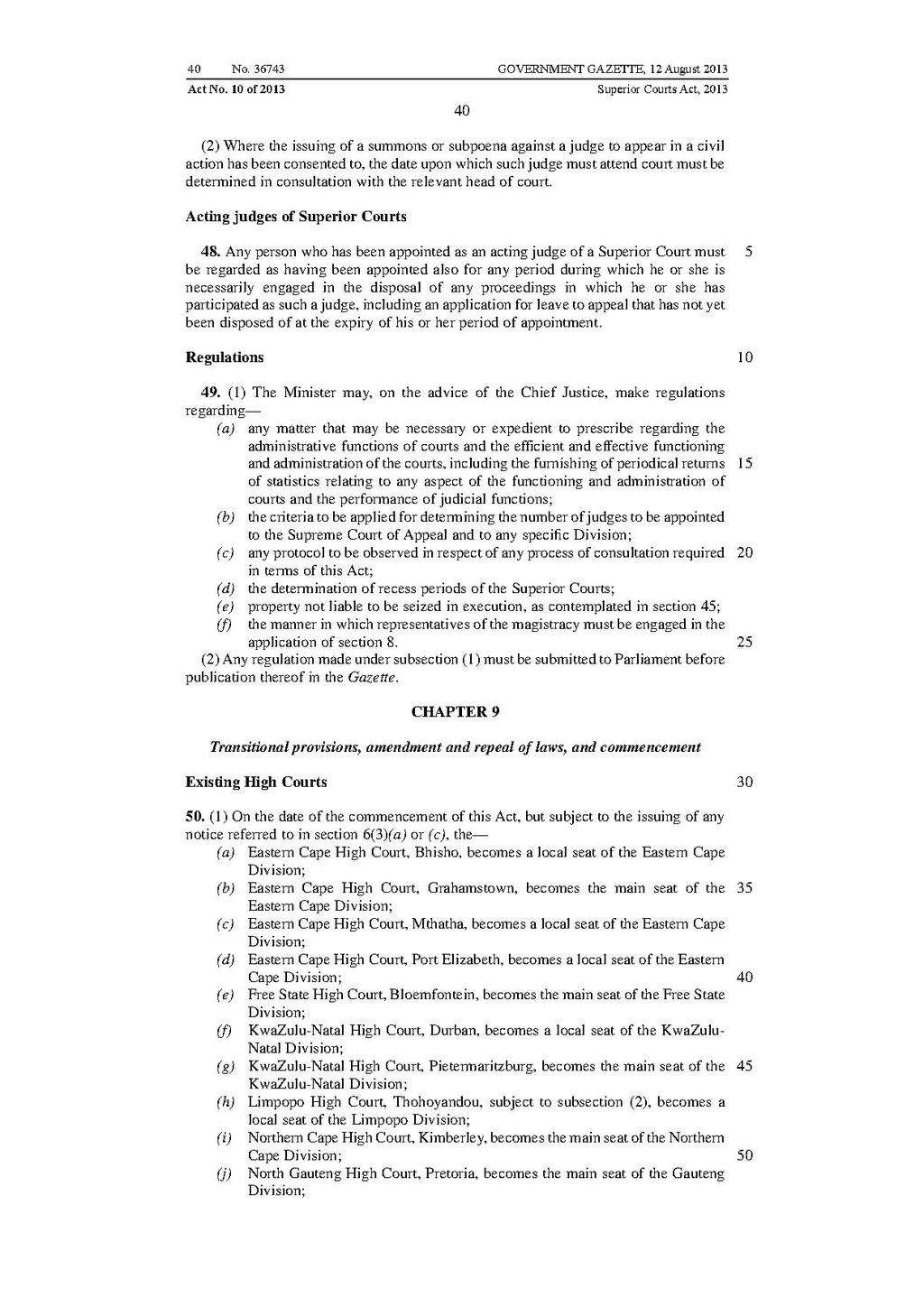40
(2) Where the issuing of a summons or subpoena against a judge to appear in a civil
action has been consented to, the date upon which such judge must attend court must be
determined in consultation with the relevant head of court.
Acting judges of Superior Courts
48. Any person who has been appointed as an acting judge of a Superior Court must be regarded as having been appointed also for any period during which he or she is necessarily engaged in the disposal of any proceedings in which he or she has participated as such a judge, including an application for leave to appeal that has not yet been disposed of at the expiry of his or her period of appointment.
Regulations
49. (1) The Minister may, on the advice of the Chief Justice, make regulations regarding—
(2) Any regulation made under subsection (1) must be submitted to Parliament before publication thereof in the Gazette.
Chapter 9
Transitional provisions, amendment and repeal of laws, and commencement
Existing High Courts
50. (1) On the date of the commencement of this Act, but subject to the issuing of any notice referred to in section 6(3)(a) or (c), the—
